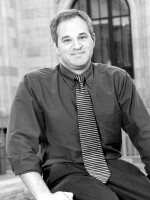MELISSA BLOCK, host:
Elizabeth Edwards was on the campaign trail today in Cleveland. The wife of Democratic presidential candidate John Edwards was diagnosed with an incurable but treatable form of cancer last week.
NPR's Adam Hochberg reports on her first solo campaign appearance since her diagnosis.
ADAM HOCHBERG: When Elizabeth Edwards announced last week that her cancer had returned, she vowed that it would have little effect on her activities or her travel schedule. Today, she's set out to prove it, delivering a lunchtime speech in Cleveland, an event that attracted hundreds of well-wishers and a crush of international media.
Unidentified Woman: Best of luck.
Ms. ELIZABETH EDWARDS (Wife of presidential candidate John Edwards): Best wishes. Thank you. Thank you.
Unidentified Woman: And your husband...
Ms. EDWARDS: Thank you, (unintelligible).
Unidentified Man: Hi. I'm from a Norwegian newspaper.
Ms. EDWARDS: Oh, how are you?
Unidentified Man: Oh, how are you doing?
HOCHBERG: Mrs. Edwards appeared at the City Club of Cleveland, a century-old institution that's long been a popular stop for politicians. More than a dozen cameras recorded her as she shook hands with supporters and nibbled her at lunch. Later, she spoke about her disease and the encouragement she's hearing as she tries to fight it.
Ms. EDWARDS: I spoke late last week to Lance Armstrong, and we talked about how hard it was to be despairing when we have people cheering for us the whole way. You can't stop, can you? You can't stop when they're cheering for you the whole way? And that's how we feel from that support.
HOCHBERG: Edwards' remarks were more personal than political. She only briefly referred to her husband's campaign, promoting his plan for universal health care and touching on such issues as the environment and campaign finance reform. But most of her comments concerned her medical condition. And she again expressed optimism she'll be able to control it with ongoing treatment.
Ms. EDWARDS: It will be later this week, and perhaps next week, or probably later this week that I'll meet with my doctor to find out more information about the cancer that it's in me, so we can develop a protocol. But she's talking to a large number of people and I think she cares about me and wants me to get well. So she's - I trust her to guide me to the treatment that will be the most efficacious.
HOCHBERG: Today's appearance in Cleveland had been on Edwards' schedule for several months, part of a city club series of prominent female speakers. But after last week's news, today's event attracted what club officials said was an unusually large crowd. Judy Gustafson was one of several women in the audience who are battling breast cancer themselves. She called Edwards' fight against the disease an inspiration.
Ms. JUDY GUSTAFSON (Battling Breast Cancer): I think it'll make people more aware of how devastating the disease can be. I'd like to be able to be as strong as she is and to keep on fighting like I have been for almost three and a half years.
HOCHBERG: Indeed, since Edwards was first diagnosed with cancer in 2004, she's grown into a role model for many women. She wrote a bestselling book, became a popular guest on the talk show circuit, and says she's received more than 60,000 e-mails of support. Still, political analysts say it's hard to predict her for a new health challenge will affect her husband's presidential hopes. Karen Beckwith, who teaches gender politics at Case Western Reserve University, says Edwards' illness may cause voters to look at the presidential race in a new light.
Professor KAREN BECKWITH (Gender Politics, Case Western Reserve University): This offers Elizabeth Edwards and John Edwards the opportunity to emphasize issues of health care, of women's health, other issues related to women that may strengthen his campaign. All of these are issues that Democratic candidates do very well on. These are issues that really pull a female vote toward the candidate.
HOCHBERG: On the other hand, Beckwith says Mrs. Edwards' illness could hinder the campaign if it reduces the amount of time either she or her husband can spend traveling meeting voters and raising money. For now, though, the Edwardses say there are no plans for either of them to slow down. The former senator campaign in California today, while Elizabeth Edwards plans a book-signing in North Carolina later this week.
Adam Hochberg, NPR News, Cleveland. Transcript provided by NPR, Copyright NPR.



